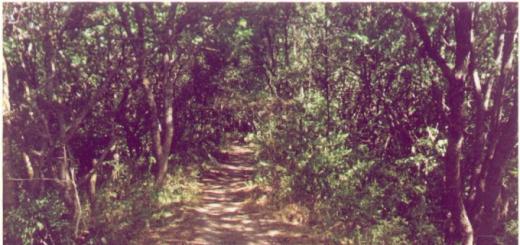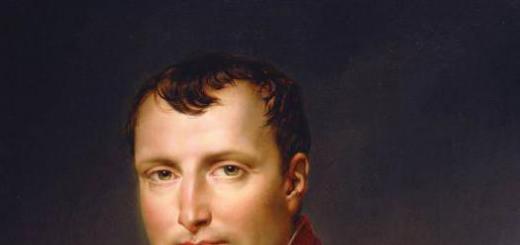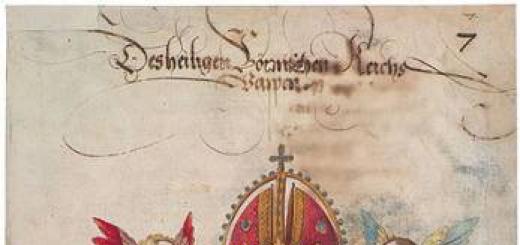Alois Hitler is a far less sympathetic figure. He was an illegitimate child and therefore bore at first the name of his mother - Schicklgruber - and only much later changed it to the name Hitler. He did not receive any maintenance from his parents and did everything in his life himself. Hard work and self-education helped him go from a small employee of the Austro-Hungarian customs to the "highest rank", which gave him the unconditional status of a respected bourgeois. Thanks to his modest life and ability to save, he saved so much money that he was able to buy an estate and still leave a decent fortune to the family, which, even after his death, provided his wife and children with a secure existence. Of course, he was selfish, he was not bothered by the feelings of his wife, however, in this respect, he was probably a typical representative of his class.
Alois Hitler was a lover of life; he was especially fond of wine and women. He was not a womanizer, but the narrow framework of bourgeois morality was too tight for him. He liked to drink a glass of wine and did not deny himself this, but he was not at all a drunkard, as was reported in some publications. But the main thing, in which the life-affirming orientation of his nature was manifested, was his passion for beekeeping. He usually spent most of his leisure time near the hives. This passion manifested itself early; creating his own apiary became a dream of his whole life. Finally, the dream came true: he bought a peasant farm (at first too big, then smaller), and by the end of his life he equipped his yard in such a way that he gave him great joy.
Alois Hitler is often depicted as a cruel tyrant - probably in order to make it easier to explain the character of his son. But he was not a tyrant, although he was an authoritarian person; he believed in such values as duty and honor, and considered it his duty to determine the fate of his sons before they reached maturity. As far as is known, he never applied corporal punishment to Adolf; he reproached him, argued with him, tried to explain to him what was good and what was bad for him, but he was not that formidable father figure who inspires his son not only with respect, but with horror. As we will see, Alois early noticed the growing irresponsibility and flight from reality in his son, which led the father to rebuke Adolf more than once, warn of the consequences and try to reason with his son. Much indicates that Alois Hitler was quite tolerant of people, he was not rude, he never behaved defiantly, and in any case he was not a fanatic. His political views also correspond to this image. He showed great interest in politics, holding liberal, anti-clerical views. He died of a heart attack while reading a newspaper, but his last words expressed indignation against the "blacks", that is, the reactionary clerics.
How to explain that two normal, respectable and non-destructive people gave birth to such a "monster", which became Adolf Hitler?
Early childhood of Adolf Hitler (up to six years: 1889-1895)
The kid was a favorite, his mother took care of him like the apple of her eye, never scolded him and always expressed her tenderness and admiration. He could not be mistaken, everything he did was wonderful, and at the same time his mother did not take her eyes off him. It may very well be that such an attitude contributed to the formation in his character of such traits as passivity and narcissism. After all, it took no effort on his part to hear from his mother that he was "magnificent"; he did not need to worry about anything, for his every desire was fulfilled immediately. He himself could order his mother and fell into anger if at least something was refused. However, as we noted above, it was precisely the exaggerated guardianship on the part of his mother that could be perceived by him as an interference in his affairs, which he later tried to avoid. The father, by the nature of his service, was rarely at home, that is, there was no authority of a man in the house, which could have a beneficial effect on the formation of the boy. Passivity and infantilism were intensified by the fact that the boy was often ill, and this attached a loving and caring mother to him even more.
This period ended when Adolf was six years old, and by that time several events had happened in the family at once.
The most important event from the point of view of classical psychoanalysis was the birth of a little brother who was 5 years younger than Adolf and who had to give up a piece of space in his mother's heart. But such an event often has not a traumatic, but quite a beneficial effect on the older child, contributes to a weakening of dependence on the mother and an increase in activity. Contrary to popular beliefs, the facts known to us show that little Adolf did not suffer from jealousy in any way, and for a whole year he rejoiced with all his heart at the birth of his brother.
At this time, the father received a new appointment in Linz, but the family remained in Passau for another year, so as not to move with a newborn baby, but to give him the opportunity to acclimatize.
For a whole year, Adolf lived the heavenly life of a five-year-old child who played noisy games with his peers from neighboring houses. The favorite games were games of Indians and cowboys, who were constantly at war with each other. He will retain his attachment to these games for many years to come. Since the German town of Passau was the border point of the Austro-German border, there was an Austrian customs control, so it is possible that such "forces" that participated in the Franco-German war of 1870 were also involved in the military games; however, few people cared about the nationality of the victims. Europe was full of heroic youngsters who were ready to indiscriminately crush and cut everyone in a row, regardless of ethnicity. This year of military children's games had great importance for Hitler's later life, not in the sense that he lived in Germany, where he learned the Bavarian dialect, but in the fact that it was for him a year of almost absolute freedom. At home, he began to carry out his will more persistently, and probably at this time the first fits of anger appeared when he could not get his way. But on the street, he knew no limits in anything - neither in fantasies, nor in actions.
Paradise life ended suddenly: the father retired, and the family moved to Hafeld near Lambach. Six-year-old Adolf had to go to school. Here he saw "a life limited by the scope of prescribed activities, which required discipline and a responsible attitude from him. For the first time, he felt the need to constantly obey someone."
What can be said about the formation of his personality at the end of this first period of life?
From the point of view of Freud's theory, both aspects of the Oedipus complex developed in full measure during this period: sexual attraction to the mother and hostility to the father. The empirical evidence seems to support Freud's hypothesis: indeed, little Adolf was very attached to his mother and angry with his father; however, he could not free himself from the Oedipus complex by identifying with his father and creating his own super-ego. He could not overcome his attachment to his mother, but when she gave birth to him a little rival, he felt deceived and moved away from her, moved away.
However, there are serious doubts about the correctness of Freud's interpretation. If the birth of a brother had been such a traumatic factor for the five-year-old Adolf that it led to a break in his connection with his mother and the transformation of love into hatred, then the whole year after this event could not have been so happy, almost the happiest year in his life. And how to explain then that the image of the mother forever remained so sweet for him? That he always carried one photograph of her in his breast pocket, while he had exactly the same photographs at home, and in Obersalzburg, and in Berlin? And is it worth considering his hatred of his father as a consequence of the Oedipus complex, since we know that the relationship of mother to father was not really distinguished by the depth of feelings? Much more convincing is the hypothesis that this antagonism arose as a reaction to the exactingness of the father, who wanted to see obedience, discipline and a responsible attitude to work in his son. Let us now test the hypothesis of the malignant incestuous connection mentioned above. This hypothesis would lead to the conclusion that Hitler's obsession with his mother was not of the nature of tender and warm affection; that he never parted with his narcissism (that is, he was always cold and self-absorbed); that his mother was not so much a real person for him as she played a symbolic role; she was the personification of the impersonal power of the Earth, fate and even death. Despite his coldness, Hitler, apparently, was really connected by symbiotic bonds with his mother and her symbolic hypostases. Such a connection is often found as a kind of inverted form of mysticism, when the ultimate desired goal is union with the mother in death.
If this hypothesis is correct, then it is easy to understand that the birth of a brother was not at all the basis for disappointment in the mother. Indeed, it is hardly appropriate to say that he turned away from his mother, since he was never emotionally close to her.
But it is very important for us to understand one thing: if we want to find the reasons for the formation of Hitler's necrophilic personality, then we need to look for them precisely in the tendency to incest, which is so characteristic of his childhood impressions of his mother. Germany itself became the main symbol of the mother for him. His obsession with his mother (=Germany) led him to hate the "poison" (Jews and syphilis) from which he was supposed to save her; however, in a deeper unconscious layer of the psyche, a repressed desire for the destruction of the mother (= Germany) was rooted. And he proved this by his actions and realized this desire of his starting from 1942, when he already knew that the war was lost, and until the last order in 1945 on the complete destruction of all areas captured by the enemy. It is this behavior that confirms the hypothesis of his sinister connection with his mother. Hitler's attitude to his mother was not at all like what usually characterizes the "attachment of a man to his mother" when we meet warm feelings, care and tenderness. In such cases, a man feels the need to be close to his mother, to share with her; he feels really "in love" (in the childish sense of the word). Hitler never experienced such affection (at least after the age of five, and most likely before). As a child, he loved most of all to run away from home and play soldiers or Indians with the guys. He never thought or cared about his mother.
Mother noticed this. Kubizek notes that Klara Hitler herself told him that Adolf had no sense of responsibility, that he squandered his small inheritance, not thinking that he had a mother and little sister, "he goes his own way, as if he alone lives in the world ". The lack of attention to the mother became especially noticeable when she fell ill. Although she was diagnosed with cancer and operated on in January 1907, Hitler left for Vienna in September. Sparing him, his mother hid her ill health from him; and that suited him just fine. He did not at all try to find out the true state of affairs, although it cost him nothing to visit her in Linz - it was very close and financially did not present any difficulties. He did not even write letters to her from Vienna, and thus gave her a lot of unrest. According to Smith, Hitler returned home after the death of his mother.
True, Kubizek cites other facts: he says that Klara Hitler asked her son to come and look after her when she felt completely helpless, and at the end of November he came and looked after her for about three weeks until her death. Kubizek notes that he was extremely surprised to see how his friend was cleaning the floor and preparing food for his mother. Hitler's attention to the eleven-year-old sister was manifested in the fact that he forced her to give her mother a promise to be a diligent student. Kubizek touchingly describes Hitler's attitude towards his mother, wanting to emphasize his love for her. But these reports cannot be fully trusted. For Hitler could also in this case take advantage of the situation to "work for the public" and make a good impression. Perhaps he did not refuse his mother when she asked him for help; and three weeks is not such a long time to get tired of the role of a loving son. Nevertheless, the description of Kubizek looks unconvincing, because it contradicts the general position of Hitler and his behavior in general. Summing up, it should be said that Hitler's mother was never for him an object of love and tender affection. She was for him a symbol of the guardian goddess, worthy of admiration, but also the goddess of chaos and death. At the same time, she was the object of his sadistic lust for power and domination, which turned into a rage if he met with any refusal.
Hitler's childhood (age six to eleven: 1895-1900)
The transition from childhood to school years happened suddenly. Alois Hitler retired and from that day on he could devote himself to his family, especially raising his son. He bought a house in Hafeld, near Lambach. Adolf went to a small village school in Fischlam, where he felt very comfortable. Outwardly, he obeyed his father's orders. But Smith writes: "Inwardly he resisted. He knew how to manipulate his mother and could throw a scandal at any moment." Probably, such a life brought little joy to the child, even if it did not come to serious skirmishes with his father. But Adolf discovered for himself a sphere of life that allowed him to forget all the regulations and restrictions (lack of freedom). These were games with the guys in the soldiers and in the Indians. Already in these early years with the word "freedom" Hitler associated freedom from responsibility and coercion, and above all "freedom from reality", as well as a sense of leadership. If we analyze the essence and significance of these games for Hitler, it turns out that for the first time there appeared those very features that intensified with age and became the main ones in his character: the need to rule and an insufficient sense of reality. Outwardly, these were completely harmless games, appropriate for age, but we will see later that this is not so, because he could not tear himself away from them even in those years when normal young men no longer do this.
In subsequent years, significant changes took place in the family. The eldest son of Alois, at the age of 14, to the chagrin of his father, left home, so the role of the eldest son now went to Adolf. Alois sold his estate and moved to the city of Dambach. There Adolf began to study in a fairly modern school and he did it well, at least successfully enough to avoid serious disagreements with his angry father.
In 1898 the family changed their place of residence once more, this time they settled in a remote area of Linz, in a place called Leonding, and Adolf changed schools for the third time. Alois Hitler liked the new place. Here he could breed bees as much as he liked and talk about politics. He was still the head of the house and allowed no doubts about his authority. His best friend according to Leonding, Joseph Maierhofer will say later: "In the family he was strict and did not stand on ceremony, his wife was not amused ..." He did not beat the children, Adolf never touched a finger, although he "cursed and grumbled constantly. But the dog who barks doesn't necessarily bite. And his son respected him."
The biographer paints us a portrait of an authoritarian personality, a rather stern father, but not at all a cruel tyrant. However, Adolf was afraid of his father, and this fear could be one of the reasons for his lack of independence, which we will hear about later. However, the father's authoritarianism cannot be considered in isolation from other circumstances; if the son had not insisted on being left alone, if he had shown a greater sense of responsibility, then, perhaps, friendly relations would have been established with such a father, because the father wished his son well and was not at all a destructive person. So the conclusion about "hating the authoritarian father" is largely an exaggeration, a kind of cliché, like the Oedipus complex.
One way or another, for five years the boy studied at the folk (elementary) school without any problems. He was probably smarter than many of his classmates, he was treated better by his teachers (out of respect for his family's social status), and he got the best grades without much effort. Thus, the school did not stimulate him to succeed and did not violate his finely balanced system of compromises between adjustment and rebellion.
It cannot be said that by the end of this period there has been a clear deterioration. But there are also some disturbing symptoms: he failed to overcome early childhood narcissism; he did not approach reality, but remained in a fantasy world; he lived in an illusory realm of freedom and power, and the world of real activity was far from him and interested him little. The first school years did not help him outgrow the infantilism of early childhood. But outwardly, everything was fine so far, and it did not come to open conflicts.
Propaganda portrayed Hitler as a man who came into history from nowhere. There was no place in this myth for the family, no one was supposed to know about it. His half-brother Alois ran a pub in Berlin, his half-sister Angela looked after the house, his sister Paula was engaged to a murderer, one nephew fought on the side of Hitler, the other fought against. This family had many secrets. Modern research explain why the dictator concealed his origins. He was just afraid that it would make him vulnerable. But who were his relatives? What did Hitler think about his relatives, who did they consider him to be?
Mother of Adolf Hitler
Clara Pelzl was born into a peasant family in the Waldviertel (Austria) in 1860. The girl's father is Johann Baptist Pelzl, mother is Johann Hütler (Gütler), daughter of Johann Nepomuk Hüttler. Hitler - the father of Adolf Hitler - was an illegitimate child, whom his mother's husband recognized only in 1876, when he was already 39 years old. Johann Georg Hüttler, who always wanted to have a son, adopted a child, but as a child, Alois constantly lived with his uncle (according to other information - grandfather) - Johann Nepomuk. It was through his efforts that Alois was recognized as the son of Johann Georg. Upon adoption, the surname changed to Hitler. So, Clara Hitler and Alois Hitler, as a result of whose relationship the Nazi dictator was born, were related to each other.

Clara Pelzl's family
Clara had five brothers and the same number of sisters. Almost all of them died young. Only the sisters Johanna and Teresia lived relatively long lives (48 and 67 years respectively). Johanna was unmarried, had a hunchback, died from a coma due to diabetes. Adolf Hitler's aunt bequeathed most of her fortune. Theresia Hitler (Schmidt) married a wealthy peasant and continued her family. The rest of the children of Johann Baptist and Johanna Hütler died in childhood or at a very young age: Johann, Franz and Maria lived less than a year, Joseph at twenty-one, Anton at five, Karl Boris at a year and a few months, Maria at four years.
Acquaintance with Alois
After leaving school, Clara Hitler's biography took her to Alois' house, where she got a job as a housekeeper. The girl was then only thirteen years old. Alois, too, had to rely only on himself at thirteen. He ran away from home and took a job as an apprentice shoemaker. Five years later he got into the border guard, quickly moved up the ranks and soon became a senior customs inspector in the town of Braunau. Soon Alois Hitler inherited the company. He married a woman who was fourteen years older than him. His wife divorced him when Alois took a mistress, the cook Fanny (Francis) Matzelsberger. At the same time, Alois was attracted by sixteen-year-old Clara, but he married Fanny, who gave birth to two children - a daughter, Angela, and a son, Alois. Fanny died two years later.

Marriage of Alois and Clara
Alois Hitler entered into a relationship with Clara at the time when he was officially married to Fanny Matzelsberger. To marry her, a man had to get permission from the Vatican, because formally Clara was his blood relative. The local Catholic bishopric did not give permission for this marriage. By this time, a relative of Alois, who was twenty-three years older than her, was already pregnant. She attended church regularly, conscientiously performed her duties at home. Clara Hitler could not overcome the status of a servant in which she came to Alois's house. Even years later, she called her husband "Uncle Alois."

In the first years after the wedding, Clara gave birth to two boys and one girl, but the children died in infancy. Gustav Hitler died at two years and seven months, and his sister Ida twenty-five days after his brother at the age of one and a half years. The couple's third child, Otto Hitler, lived only three days. Two children died within one month from diphtheria. Otto died of hydrocephalus. Adolf Hitler was born on April 20, 1889. Biographers write that Clara Hitler's love for her son was unconditional. He was born after the death of three children, so Clara most likely experienced fear and anxiety after giving birth, which could have dealt a severe blow to Adolf's psyche.
surviving children
In total, Clara Hitler had six children. When Adolf was almost five, Edmund was born. In early 1896, a daughter, Paula, was born into the Hitler family. Edmund died at the age of six from chicken pox. Only Adolf and Paula survived. They were the only siblings who survived to adulthood. (pictured below) worked in Vienna as a secretary, and after her dismissal began to receive financial support from her brother. At the request of Adolf, she took the fictitious surname Wolf and worked part-time. Wolf was Hitler's childhood nickname, which he used in the twenties for security purposes. Paula was the only relative of the leader of the Third Reich, to whom Hitler was attached all his life.

IN last days During the Second World War, when defeat was imminent, by order of Martin Bormann, Paula was transported to Berchtesgaden. Then Paula was forty-nine years old. In May 1945, Hitler's sister was arrested and interrogated. Later, she returned to Vienna, lived on her own savings for a while, and then worked in an art store. From 1952 she cared for former SS members and survivors of her brother's inner circle in Berchtesgaden. Paula died in 1960 at the age of sixty-four. She was the last of the Fuhrer's closest relatives living then.
Other relatives
In the family of Clara Hitler and Alois, not only their own children were brought up, but also his son Alois Hitler Jr. and daughter Angela Hitler from Fanny Matzelsberger. All the children were raised by Clara. At fourteen, Alois Jr. ran away from home due to a conflict with his father. After that, the tyranny of his father went to Adolf. The future dictator considered running away from home at the age of eleven. Angela (pictured below with her husband), Adolf's older half-sister, lived with the family until 1903. In 1903, she became the wife of Leo Raubal, a tax inspector. From him she gave birth to a son Leo, daughters Geli and Elfrida.
It's obvious that Angela had with her stepbrother a good relationship. She moved to the capital of Austria and, after the First World War, began working as a manager. For ten long years she knew absolutely nothing about Adolf's life, but in 1919 he made contact with his half-sister. In 1928 (eighteen years after the death of her first husband) she moved to the Berghof, where she became Hitler's housekeeper. Some researchers believe that Adolf had a sexual relationship with his niece Geli, who committed suicide in 1931.

Angela herself did not approve of her stepbrother's relationship with Eva Braun. Their relationship finally deteriorated when, in 1935, Hitler gave Angela a day to pack her bags. He accused the woman of helping Goering acquire land across from his property in Berchtesgaden. Hitler finally broke off warm relations with Angela. He didn't even attend her wedding. In 1936, Angela Hitler married Martin Hammich, a German architect and director of a building school. During World War II, the Fuhrer contacted his sister again. She was an intermediary in his communication with other family members.
The further fate of Angela
After the bombing of Dresden Nazi Germany moved his half-sister to Berchtesgaden so that she would not be captured by Soviet soldiers. He gave her 100,000 Reichsmarks and in his will guaranteed Angela a monthly pension of 1,000 Reichsmarks. Angela highly appreciated her brother even after the end of the war. She stated that she knew nothing about the Holocaust (as did Hitler). Angela Hitler was sure that if Adolf knew what was happening in concentration camps he would have stopped it.
Death of Clara Hitler
Alois Hitler died in 1903. On the morning of January 3, he went into a tavern to drink a glass of wine out of habit, picked up a newspaper and suddenly felt ill. Soon he died either from a myocardial infarction or from a hemorrhage in the lungs (there are several versions). Two years later, Clara Hitler sold their house and moved to Linz. Paula was then five years old, Adolf fourteen. In 1907, Clara Hitler was diagnosed with breast cancer. Soon she was admitted to the Merciful Sisters Hospital in the town of Linz. At the beginning of the year, she underwent a difficult operation that lasted an hour. Eleven months later, the woman died. Clara Hitler's cause of death is cancer.

The secret of Hitler's nationality
Adherents of the myth about the Jewish origin of the leader Nazi Germany operate with a mass of facts, some of them can be classified as fiction. However, these rumors really have to be based on something. The behavior of the Fuhrer is also suspicious, who prevented the disclosure of his genealogy after coming to power and even destroyed the documents. Back in 1928, the Berlin police proved that Adolf Hitler's grandfather was Jewish. Researchers at Harvard came to the same conclusion in 1943.
What is the nationality of Clara Hitler? Analysts believe that Hitler had Jewish blood on the paternal side, but only syphilis could be transmitted through the mother's side, which caused the death of many babies, as well as Clara's brothers and sisters. Adolf's godfather and family doctor was a Jew. Even if you omit questions of nationality, the leader of Nazi Germany was born as a result of incest. There is information that his sister Ida had a mental illness, his aunt suffered from diabetes and was born hunchbacked, the son of another aunt was a hunchback with speech defects.
Alois Hitler
Alois Hitler is a far less sympathetic figure. He was an illegitimate child and therefore bore at first the name of his mother - Schicklgruber - and only much later changed it to the name Hitler. He did not receive any maintenance from his parents and did everything in his life himself. Hard work and self-education helped him go from a small employee of the Austro-Hungarian customs to the "highest rank", which gave him the unconditional status of a respected bourgeois. Thanks to his modest life and ability to save, he saved so much money that he was able to buy an estate and still leave a decent fortune to the family, which, even after his death, provided his wife and children with a secure existence. Of course, he was selfish, he was not bothered by the feelings of his wife, however, in this respect, he was probably a typical representative of his class.
Alois Hitler was a lover of life; he was especially fond of wine and women. He was not a womanizer, but the narrow framework of bourgeois morality was too tight for him. He liked to drink a glass of wine and did not deny himself this, but he was not at all a drunkard, as was reported in some publications. But the main thing, in which the life-affirming orientation of his nature was manifested, was his passion for beekeeping. He usually spent most of his leisure time near the hives. This passion manifested itself early; creating his own apiary became a dream of his whole life. Finally, the dream came true: he bought a peasant farm (at first too big, then smaller), and by the end of his life he equipped his yard in such a way that he gave him great joy.
Alois Hitler is often depicted as a cruel tyrant - probably in order to make it easier to explain the character of his son. But he was not a tyrant, although he was an authoritarian person; he believed in such values as duty and honor, and considered it his duty to determine the fate of his sons before they reached maturity. As far as is known, he never applied corporal punishment to Adolf; he reproached him, argued with him, tried to explain to him what was good and what was bad for him, but he was not that formidable father figure who inspires his son not only with respect, but with horror. As we will see, Alois early noticed the growing irresponsibility and flight from reality in his son, which led the father to rebuke Adolf more than once, warn of the consequences and try to reason with his son. Much indicates that Alois Hitler was quite tolerant of people, he was not rude, he never behaved defiantly, and in any case he was not a fanatic. His political views also correspond to this image. He showed great interest in politics, holding liberal, anti-clerical views. He died of a heart attack while reading a newspaper, but his last words expressed indignation against the "blacks", that is, the reactionary clerics.
How to explain that two normal, respectable and non-destructive people gave birth to such a "monster", which became Adolf Hitler?
From the book of Adolf Hitler. Clinical case of necrophilia. author Fromm Erich SeligmannErich Fromm Adolf Hitler. A clinical case of necrophilia Fromm E. The Anatomy of Human Destructiveness Publisher: Progress 1992. When a psychoanalyst studies the biography of his client, he always tries to get an answer to two questions: 1) What are the main driving forces in a person’s life, what
From the book of Adolf Hitler. Clinical case of necrophilia. author Fromm Erich SeligmannClara Hitler The most powerful influence on a child is not one or another event in life, but the character of the parents. Those who believe in the simplified formula of everyday consciousness - "the apple does not fall far from the apple tree" will be amazed to learn the facts of the life of Hitler and his family: for both father and
From the book social impact author Zimbardo Philip GeorgeMilgram Scenario: Would you electrocute a person if Hitler asked you to? The best way to describe Milgram's research would be the subject's point of view. Imagine that after reading an ad in a newspaper, you sign up to participate in
From the book The Psychology of Domination and Subordination: A Reader author Chernyavskaya A. G.Hitler - a psychopath and a criminal? In his forensic psychiatric study of the Hitler case, de Boor used mainly two scientific methods, which, by analyzing various characteristic features get the most objective assessment personalities from a point
From the book Crimes in Psychiatry [Victims of experiments and not only...] author Fadeeva Tatyana BorisovnaAdolf Hitler and the rise of Nazism I swear to you, Adolf Hitler, my leader, loyalty and courage. I promise you and all whom you appoint as my superiors, to obey until death. (from the text of the oath) Cherishing dreams of the triumph of National Socialism in the world
From the book Anatomy of Human Destructiveness author Fromm Erich Seligmann From the book The Ins and Outs of Love [Psychoanalytic epic] author Menyailov Alexey AlexandrovichChapter Ten Hitler and His Women There is such a country in the world - Germany. All its inhabitants have heard about Goethe, Wagner, Bach and German philosophy, and therefore consider themselves a cultural phenomenon of a planetary scale. Neighboring this country of cultured people, in Austria, April 20, 1889
From the book The Battle of Psychics. How it works? author Vinogradov Mikhail ViktorovichAlois or Alois Hitler(German Alois Hitler, June 7, 1837, the village of Strones - January 3, 1903, Linz) - Austrian customs officer, father of Adolf Hitler.
Biography
Origin
Alois Schicklgruber was born on June 7, 1837 in the village of Strones near Döllersheim to a 42-year-old unmarried peasant woman, Maria Anna Schicklgruber.
The child received the surname of his mother, since the field with the name of the father was not filled in the document on the baptism of the child and there was a note “illegitimate”, which he formally remained until his 39th birthday.
When Alois was already 5 years old, Maria Anna Schicklgruber married the apprentice miller Johann Georg Hiedler. When registering the marriage, Alois remained with his mother's surname and illegitimate. Officially, Giedler never acknowledged Alois as his son. Maria Anna died five years after her marriage from exhaustion due to chest dropsy. And Johann Georg Hiedler died ten years after his wife in 1857.
At present, Johann Nepomuk Güttler or his brother Giedler can be considered the father of Alois with the highest degree of probability; most biographers, including the well-known historian, specialist in Hitler's biography Werner Maser, give preference to Güttler.
There are other versions about Alois's father, for example, it has been suggested that Alois's biological father could be the 19-year-old son of a Jewish banker Leopold Frankenberger, for whom Maria allegedly worked as a servant for some time, which was subsequently carefully hidden by the Nazis, as evidence of a possible Jewish origin of the Fuhrer. Other historians, notably Ian Kershaw and John Toland, reject this version. And Joachim Fest directly says that this statement is very, very doubtful.
Johann Nepomuk Güttler was a wealthy man and lived as a rentier for the last 35 years of his life. He also owned the only hotel in Spitel.
At the same time, Johann Nepomuk Güttler was also the grandfather of Clara Pölzl, the mother of Adolf Hitler. That is, Alois Hitler in his third marriage married the daughter of his half-sister (Johanna Güttler).
Alois began to be called Hitler only on January 6, 1876, when he was already 39 years old and he first signed "Hitler". Instead of Güttler, the surname became Hitler due to a priest's mistake when writing in the Birth Registration Book. The legitimization of the fact of paternity happened so late, because during the life of his wife (who was 15 years older and was the head of the house), Johann Nepomuk Güttler could not start this procedure. And at the age of 40, Alois refused all contact with his maternal relatives, the Schicklgrubers, and finally became Hitler.
early years
Until the age of five, Alois lived in the village of Shtrones with his grandfather and mother. After his mother got married, Alois Schicklgruber was sent to the neighboring village of Spitel on a farm to her husband's brother Johann Nepomuk Güttler (actual father).
Johann Nepomuk Güttler surrounded Alois with warmth and love, since he did not have a legitimate successor to the family, but had only three daughters - Johanna, Walburga and Josef.
In Spitel he attended elementary school.
From 1851, he began to study shoemaking with a relative of Ledermüller, first in Spitel, and from 1853 in Vienna. In Vienna until 1855 he worked as an apprentice shoemaker.
In 1855, at the age of 18, he entered the service of the Kaiser's financial guards. Intensively engaged in self-education.
Career
In 1860 he was transferred to Wels near Linz. This translation is an important milestone in his career.
In 1861 he was promoted and in 1862 transferred to Saalfelden near Salzburg.
In 1864, another promotion and transfer to Linz. This promotion and transfer obliged the state to accept him for service in the customs office as an employee with all the benefits of a government official.
Alois Schicklgruber quickly rose through the ranks.
Since 1870 he has been working as an "assistant to control". X class of the table of ranks.
In 1876, approved in the service and officially approved, the change of the surname "Schiklgruber" to "Hitler". Thus, contrary to popular misconception, his son Adolf Hitler never bore the surname Schicklgruber.
Well, since they asked, I repost the story on my own with a confused surname and additions.
Unfortunately, it was not possible to find a sufficient number of photographs of A. Hitler's father, because (according to Joachim Fest, the creator of the most detailed biography of "Hitler") Adolf, becoming Reich Chancellor, purposefully concealed or destroyed all materials related to his family and the times of his youth: nothing should have cast a shadow on the Fuhrer, including the story of his very gray-footed origin. But, let's talk about dad and his last name.
Photo from 1870, here Alois (still Schicklgruber) is 33 years old (he was born on June 7, 1837):
So, strictly on genealogy. In the Austro-Hungarian borderlands, the surnames Hitler, Gidler or Güttler (presumably Czech - Gidlar, Gidlarchek) were very common and in one of the variants were traced back to the 30s of the 15th century (Jetzinger F. "Hitlers Jugend", S. 11)
In 1837, an unmarried servant Anna-Maria Schicklgruber (Schicklgruber) gave birth to an illegitimate child baptized under the name Alois. Five years later, Anna-Maria married the assistant miller of the Dellersheim community, Johann Georg Giedler. Further, it is even more interesting: in the same year, the son Alois was given to be raised by a relative of her husband, the peasant Johann Nepomuk GüTTler (both Güttler and Gidler are the alleged fathers of Alois, it is not known exactly). What follows is a rather murky and uninteresting story with the Austro-Hungarian bureaucracy and registration in the register of civil status.
Photo 2. Alois Hitler in the uniform of a senior official of the customs department of Austria-Hungary. The rank is similar to the Russian collegiate assessor or army major (a very decent rank, we note):

So: in 1877, after the death of Anna-Maria Schicklgruber (married GiDler) and 19 (!) years after the death of her husband, Johann Nepomuk GüTTler came to the pastor of Dellersheim with a request to "adopt" customs official Alois Schicklgruber. And the civil status book (probably not without a bribe) was replaced by the birth "out of wedlock" with "married" and Alois Schicklgruber officially became Alois Hitler. The surname was written as Hitler(and not Huttler and not Hiedler), which was undoubtedly the pastor's mistake, which was recorded by the Austro-Hungarian officials. Thanks to an inattentive pastor and the bureaucrats of Austria-Hungary who did not pay attention to the typo (or took the surname by ear) this surname became infamous.
3. Alois Hitler retired:

12 years later (in the marriage of Alois Hitler to Clara Pelzl), Adolf Hitler was born, who never did not bear the surname Schicklgruber.
At the moment, in the Linz region (Austria), 563 people have the surname Güttler, 226 people have the surname Gidler, and 46 people have the surname Hitler. The surname "Gidlar" in the Czech Republic is quite common - not like Ivanov in Russia, of course, but still.
Mom and dad, Alois and Clara Hitler are buried under their first names, surnames, here is their grave in its modern form:











